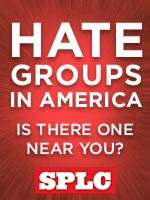Who do you know in the wide world who goes about life without any rules of any kind?
Well, besides W, I mean.
Where two or more are gathered together, there must be some kind of game plan, some set of rules. Etiquette, for instance. If you want me to speak with you, introduce yourself. Hygiene: No, you may not drop trou' and whiz on the floor. Conflict avoidance: You may not take my toys unless I say that you can.
That's "regulation." It's not a bad word unless you want to have your way 100% of the time without any consequences whatsoever. That describes a 2-year-old, and it describes US corporations.
The notion that a corporation that, by law, is required to give precedence to the wellbeing of its stockholders, will voluntarily police itself is fantasy. It's like putting my Doberman in charge of the filet mignon. It's not in her nature to look out for the filet mignon. It's not gonna happen.
The Republican commitment to deregulation is, in fact, total capitulation to corporate self interest. It's exactly the same thing as leaving your neighborhood pre-schoolers alone in the house with the oven on, the iron on, the BBQ fire going, the propane match lying on the floor, and all the doors wide open. It's just not in their own or the community's best interests.
I define corporate self interest by example. Countrywide, Merrill Lynch, and all the other entitites involved in this (projected) $295 billion housing crash put themselves in this position because they followed their nature. Enron cannibalized the energy users of California and the pensions of its own employees because it could not escape its nature. Mattel has not withdrawn dangerous toys all across the land because it cannot behave as anything other than a capitalist corporation. Bridgestone-Firestone cannot refrain from utilizing child labor in its rubber enterprises because it cannot override its nature. Remember this when you see its SuperBowl ad and think twice.
Regulation is setting limits. It's simply how we go about balancing the individual's nature with the community's best interests. We do it instinctually at home with our children because anyone who's spent more than an hour in the charming company of a two-year-old knows the importance of setting boundaries. We should not hesitate to do it in the not-so-charming company of the Enrons and Countrywides and Mattels and Bridgestone-Firestones.
Why? Because what's in the nature of the two-year-old is also in the nature of the 50-year-old corporate CEO. Our bifurcated, sometimes good, sometimes not-so-good human nature doesn't change. It's a given whether it operates on the kitchen floor or in the realm of international commerce.
The glaring example of the housing crash, Enron, and Mattel should be the only lesson Americans need about the importance of serious regulation of American business.
I hope that we are wise enough, mature enough, now, to see through the BS that Republicans like Mitt Romney and John McCain pump out about "free market" and "crippling" regulation.
Now, from where I sit, "crippling" is defined in context. An "uncrippled" corporation is a corporation free to prey on the workers, the natural resources, and the environment worldwide. That leads directly to poverty, exhausting our commonwealth for the profit of a few, and to environmental degradation and global crisis.
Can there be stupid regulation? Sure. Can parents be stupid? Duh. The solution is not to dispense with regulation. The solution is to correct our mistakes and hold firm in the interests of the Earth and all its residents.
Thursday, January 31, 2008
Regulation
Posted by
PICO
at
1/31/2008 06:13:00 PM
![]() Labels:
Bridgestone-Firestone,
Countrywide,
Mattel,
Merrill Lynch,
regulation
Labels:
Bridgestone-Firestone,
Countrywide,
Mattel,
Merrill Lynch,
regulation
Subscribe to:
Post Comments (Atom)



















0 comments:
Post a Comment